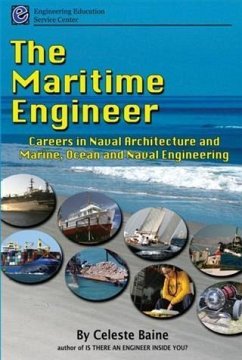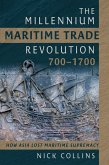What is Maritime Engineering?In this book, maritime engineering refers to the engineers who work in the maritime and ocean industries. They design anything that can be used as transportation on water, such as commercial, cargo or Navy ships, yachts, submarines, seaplanes, and icebreakers. Maritime engineers also design underwater structures and ocean technology such as offshore drilling platforms, wind farms, diving gear, underwater robots (both remotely operated and autonomous) and underwater "e;cities"e; such as Aquarius, the underwater astronaut training center. Working in and near the ocean is unpredictable, corrosive, and sometimes hostile, so special training and systems are often required. Engineers are life-long learners because there are many considerations in the design of each and every ship. For example, a Navy ship has to have systems that can detect airborne, surface, and subsurface threats, operate over long periods of time in any area of the world, and defend themselves and others against attacks. To do this, Navy ships must be able to withstand shock and blast effects, operate when damaged, prevent detection in hostile waters, have propulsion systems that are acoustically quiet, and much more. The demands are uncommon and therefore, the training to enter these fields is very specialized. Marine structures, vehicles, and systems are unique and often expensive because they are large and complex, and only a few of each design are built. Anything that operates in or on the ocean has special design requirements for seakeeping, staying upright, capsizing, station-keeping, and enduring the random motions and loads of rogue waves and intense winds. Due to these unique requirements, manufacturing is often more challenging. David Helgerson, the technical director for CSC's Advanced Marine Center says, "e;Ships are large complex integrated systems; they require large teams to design, and it can take a long time. At the same time, the rewards are in proportion to the challenges."e; As with most things in life, the more heart and soul you put into a project, the more rewards you may get out. It's very important that you choose a career field that you are naturally interested in. If you love being by or in the water, going to the beach, sailing, swimming, scuba diving, paddleboarding, surfing, kayaking, canoeing, or fishing, then maritime engineering might be a great fit. If The Deadliest Catch is your favorite television show, or if you like to watch boats come in and out of the harbor, or dream of taking a cruise to an exotic destination, this may be the career for you.
Dieser Download kann aus rechtlichen Gründen nur mit Rechnungsadresse in A, B, BG, CY, CZ, D, DK, EW, E, FIN, F, GR, HR, H, IRL, I, LT, L, LR, M, NL, PL, P, R, S, SLO, SK ausgeliefert werden.









